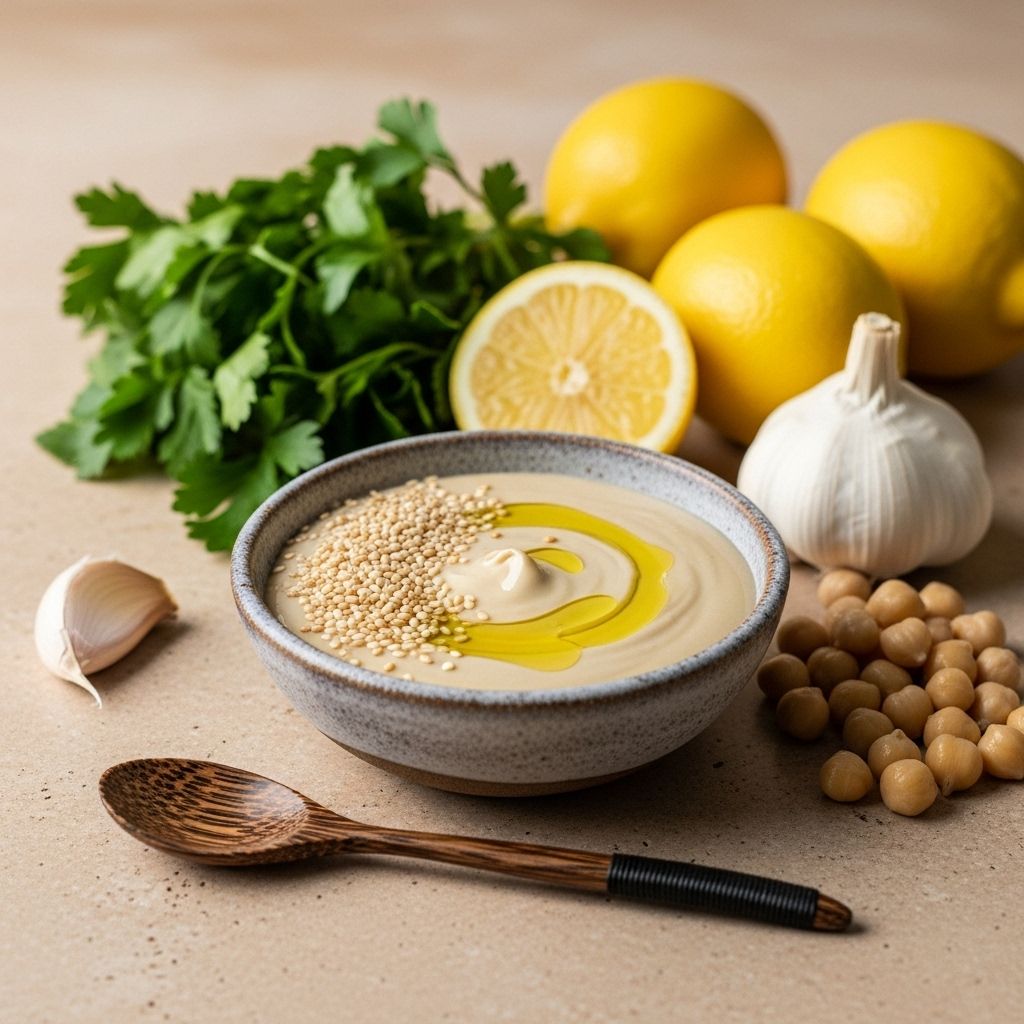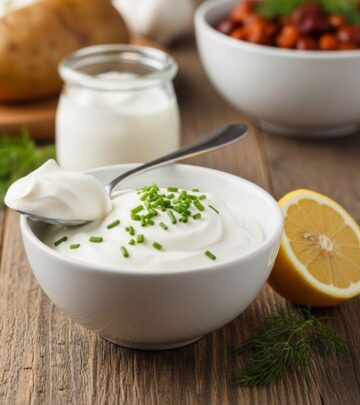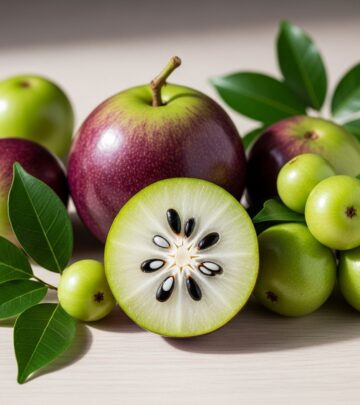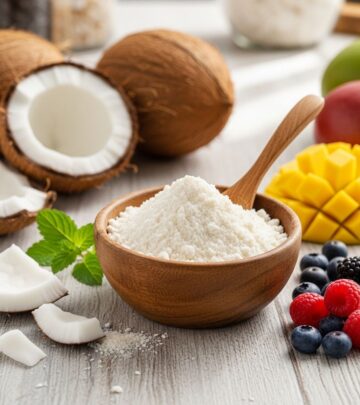Tahini Benefits: Nutrition, Uses, and Surprising Health Effects
Nutritious sesame paste that strengthens bones, uplifts heart health, boosts immunity.

What Is Tahini?
Tahini is a creamy, paste-like condiment made by grinding sesame seeds, commonly used in Mediterranean, Middle Eastern, and North African cuisines. With its light, nutty flavor and versatility, tahini plays a starring role in dishes like hummus and baba ganoush, but can enhance everything from salad dressings to desserts. Ground from either hulled or unhulled roasted sesame seeds, tahini’s natural richness is matched by its powerful nutrient profile.
Nutritional Profile of Tahini
| Nutrient | Per 1 Tbsp (15g) |
|---|---|
| Calories | 90 |
| Protein | 2.6–3g |
| Fat | 8g |
| Carbohydrates | 3g |
| Fiber | 0.7–1.5g |
| Calcium | 64mg (5% DV) |
| Iron | 1.3mg (4% DV) |
| Magnesium | 14mg |
| Phosphorus | 9–11% DV |
| Selenium | 5–9% DV |
| Copper | 24–27% DV |
| Zinc | 6% DV |
| Manganese | 11% DV |
| B Vitamins (B1, B6) | High |
This compact nutrition highlights why tahini provides much more than flavor—it’s a matrix of minerals, protein, fiber, and healthy fats (primarily unsaturated), making it a significant supporter of heart, bone, and metabolic health.
Top 9 Science-Backed Benefits of Tahini
1. Highly Nutritious and Energy Dense
Tahini packs a dense concentration of essential nutrients, notably healthy fats and plant-based protein, aiding satiety, muscle maintenance, and sustained energy. Despite being relatively high in calories, its nutritional quality makes it a nourishing food for diverse diets, including vegan and vegetarian lifestyles.
2. Rich in Bone-Supporting Minerals
Both calcium and phosphorus are present in tahini, making it an important food for maintaining bone health. Just two tablespoons offer up to 15% of the recommended daily allowance for calcium—crucial for those avoiding dairy. The manganese and magnesium in tahini work synergistically to support both bone density and muscular health.
- May help reduce osteoporosis risk
- Supports proper muscle and nerve function
3. Supports Heart Health
The majority of tahini’s fat content comes from monounsaturated and polyunsaturated fats, shown to reduce LDL (“bad”) cholesterol and decrease the risk of heart disease. Additionally, sesame lignans and phytosterols present in tahini may help regulate blood pressure and cholesterol levels.
- Contains anti-inflammatory fatty acids
- Helps maintain healthy cholesterol balance
4. Promotes Healthy Skin and Hair
Tahini is rich in vitamin E, zinc, and B vitamins, which help maintain the skin’s moisture barrier, reduce inflammation, and support cellular repair for a more youthful appearance. Iron and zinc are also involved in strengthening hair and nails.
- Healthy fats enhance absorption of vitamins A and E
- Zinc supports collagen production for skin elasticity
- Amino acids aid tissue repair and recovery
5. Powerful Antioxidant Content
Tahini is an excellent source of antioxidants, including sesamin, sesamol, and sesaminol. These compounds help neutralize oxidative stress, potentially lowering the risk of chronic diseases, such as cancer, and slowing down the aging process.
6. May Reduce Inflammation
The plant molecules found in sesame seeds provide anti-inflammatory activity, which may help reduce chronic inflammation implicated in heart disease, arthritis, and other metabolic disorders.
- Monounsaturated fats decrease inflammatory markers
- Lignans help modulate immune response
7. Antibacterial Properties And Immune Support
Compounds in tahini, such as sesame oil’s sesamin and sesamolin, exhibit antibacterial properties effective against certain pathogens, supporting the immune system. The immunomodulatory benefits are reinforced by minerals like selenium and zinc, which help maintain normal immune function.
8. Benefits for Brain Health and Mood
Tahini is a good source of B vitamins (notably thiamine and B6), which are vital for brain metabolism and neurotransmitter synthesis. Furthermore, it contains L-Tryptophan, a precursor to serotonin (the “feel-good” hormone), and polyunsaturated fats that protect brain cells from oxidative stress. Including tahini in the diet may support cognitive function and mood stability.
- Omega-6 fats help build brain cell membranes
- Antioxidants protect against age-related decline
9. Supports Muscle and Energy Recovery
For athletes and active individuals, tahini’s magnesium, protein, and healthy fats can assist with continuous energy release and muscle recovery after exercise. Magnesium also helps reduce muscular cramps and supports restful sleep.
- Provides plant-based protein for muscle repair
- Replenishes electrolytes lost in sweat
Potential Downsides and Precautions
Despite its numerous benefits, tahini should be consumed mindfully:
- Allergies: Individuals allergic to sesame must avoid tahini. Sesame allergy can provoke severe reactions.
- Caloric Density: Tahini is high in calories, so portion control is crucial for those monitoring caloric intake.
- Oxalates & Antinutrients: Sesame seeds contain natural antinutrients, such as oxalates and phytates, which may affect mineral absorption. Roasting and processing lower these compounds dramatically, making tahini milder on this front.
- Salt Content: Some store-bought tahini brands may contain added salt—opt for unsalted if watching sodium intake.
How to Use Tahini in Your Diet
Tahini’s versatility allows it to shine both as an ingredient and a condiment. Here are some popular and inventive ways to enjoy tahini:
- As a Dip: Classic in hummus or baba ganoush. Mix with lemon juice, garlic, and water for a quick sauce.
- In Salad Dressings: Whisk with olive oil, lemon, honey, and herbs for a creamy, dairy-free dressing.
- Spread or Drizzle: On toast, roasted vegetables, or grain bowls.
- Baking: Swirl into brownies, cookies, or energy bars for nutty depth.
- Breakfast: Stir into yogurt, oatmeal, or smoothies for extra creaminess and nutrition.
How to Select & Store Tahini
- Choose: Look for tahini with minimal ingredients (ideally just sesame seeds). Some varieties are made with roasted or raw seeds. Stir before use, as separation of oil is natural.
- Store: Keep unopened tahini jars in a cool, dark pantry. Once opened, refrigerate to slow spoilage and preserve freshness. Stir well before scooping; use within six months for best flavor.
Comparing Tahini to Other Nut and Seed Butters
| Aspect | Tahini | Peanut Butter | Almond Butter |
|---|---|---|---|
| Main Ingredient | Sesame Seeds | Peanuts | Almonds |
| Protein (per tbsp) | 2.6–3g | 3.5g | 3.4g |
| Calcium (per tbsp) | 64mg | 17mg | 39mg |
| Common Allergens | Sesame | Peanuts | Treenuts |
| Flavor | Earthy, bitter-nutty | Sweet, nutty | Delicate, sweet |
| Best Uses | Sauces, dips, dressings | Sandwiches, baking | Spreads, smoothies |
Each spread has unique benefits; tahini stands out for its high calcium content and suitability for nut-free diets (unless sesame is an allergen).
Frequently Asked Questions (FAQs) About Tahini
Q: Is tahini safe for people with nut allergies?
A: Tahini is sesame seed-based and contains no peanuts or tree nuts, but sesame is also a major allergen. Always consult an allergist if you are concerned about sensitivities.
Q: Can you eat tahini if you are vegan or dairy-free?
A: Yes, tahini is 100% plant-based and contains no animal products or dairy, making it suitable for vegan and lactose-intolerant diets.
Q: How much tahini can you eat daily?
A: While there is no strict limit, moderation is recommended—one to two tablespoons daily provides health benefits without excess calories.
Q: Does tahini need to be refrigerated?
A: For freshness and to avoid rancidity, store opened tahini in the refrigerator. Stir before use if oil separates naturally.
Q: Is tahini healthier than nut butter?
A: Tahini offers unique minerals (especially calcium) but is nutritionally similar to nut butters. It’s a valuable alternative for those avoiding nuts or seeking variety in nutrients.
Key Takeaways
- Tahini is a nutrient-dense, versatile condiment packed with healthy fats, plant protein, and essential minerals.
- It supports bone, heart, immune, and skin health while delivering powerful antioxidants and anti-inflammatory benefits.
- Suitable for vegan, vegetarian, and dairy-free diets, tahini enhances both savory and sweet recipes.
- Mind portion sizes to balance its caloric density, and store opened jars in the refrigerator for best quality.
References
- https://www.healthline.com/nutrition/what-is-tahini
- https://www.healthline.com/nutrition/tahini-benefits
- https://mightysesameco.com/blog/tahini-calories-guide/
- https://soomfoods.com/blogs/blog-posts/nutritional-benefits-of-tahini
- https://anthosfoods.com/blogs/news/5-reasons-you-should-be-eating-tahini
- https://ijns.sums.ac.ir/article_48054_7e6617b573577b4f28fc21f4722472fb.pdf
- https://aanmc.org/naturopathic-kitchen/tahini/
Read full bio of Sneha Tete













